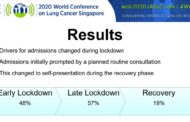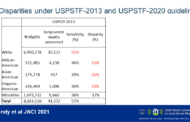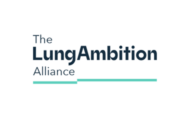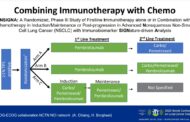The IASLC has formed an alliance with the Global Lung Cancer Coalition (GLCC), Guardant Health, and AstraZeneca to accelerate the pace of lung cancer survival worldwide. This collaborative effort—known as the Lung Ambition Alliance—allows scientists, specialists, advocates, and patients to break the barriers limiting progress with a goal to double 5-year survival rates of lung cancer by 2025. Together, the group identified three key areas of focus, or the Research Pillars, that will allow us to drive innovation and improvements in the field and, ultimately, to improve the lives of patients with lung cancer worldwide.
- Pillar 1: Increasing lung cancer screening and early diagnosis rates
- Pillar 2: Accelerating the delivery of innovative therapies
- Pillar 3: Improving the quality of care to provide the best possible outcomes for patients
The Alliance currently oversees multiple groundbreaking scientific projects that bring together oncologists, radiologists, surgeons, pulmonologists, researchers, patients, advocates, and pharmaceutical companies from around the world. These projects span a wide range of topics, from updating the current TNM Staging System to investigating tumor response to neoadjuvant therapies that help drive innovation and collaboration in the field of lung cancer. Below are IASLC-led programs under the Alliance umbrella.
MPR: Major Pathologic Response
Before the undertaking of this MPR project by the IASLC and the LAA, there were no established guidelines for processing and evaluating resected lung cancer specimens, and there was a lack of precise definitions for the degree of pathologic response following neoadjuvant therapy. The first step of the IASLC MPR addressed these barriers by establishing recommendations for the processing and pathologic assessment of lung cancer resection specimens after neoadjuvant therapy. These recommendations were published in the Journal of Thoracic Oncology. Each step of the project will help the IASLC and the Alliance establish pathologic response (PR), MPR, and/or complete pathologic response (CPR) in surgical resection specimens following neoadjuvant therapies as predictors and surrogate markers of long-term clinical benefit in patients with resected stage I to III lung cancer. The IASLC has begun working on step two of the MPR project, which aims to determine a global cadre of pathologists’ reproducibility of histological MPR and CPR assessments in surgical resection specimens of patients with lung cancer who were treated according to the published IASLC recommendations—with neoadjuvant immune checkpoint inhibitors with and without chemotherapy.
Early Lung Imaging Confederation (ELIC): A Shared Network of Imaging Resources
Effective screening is critical to early detection and diagnosis of lung cancer, thereby increasing patient survival. The Early Lung Imaging Confederation (ELIC) is an international alliance of collaborating individuals and institutions who share a vision to develop a globally distributed, privacy-secured, lung cancer imaging database, and computational analysis environment. The main goal of ELIC is to support the development of deep learning methods or artificial intelligence approaches to detect early lung cancer and other diseases using thoracic CT images, characterize small pulmonary nodules and surrounding structures, and to measure responsiveness to therapeutic interventions. The IASLC is currently facilitating the uploading of approximately 600 cases into the database.
Molecular Testing Survey
In January of 2020, the results of the IASLC Global Survey on Molecular Testing in Lung Cancer were published in the Journal of Thoracic Oncology. The purpose of this survey was to assess the current prevalence and practice of molecular testing and to identify barriers or gaps that exist to overcome these barriers and thus improve molecular testing globally. A total of 2,537 respondents from 102 countries participated in the survey, including those who test and treat patients, those who perform and interpret assays, as well as those who acquire tissue for testing. The results showed that awareness and adoption of molecular testing for lung cancer are still relatively low around the world. Although results varied by region, the five most frequent barriers cited in all regions were cost, quality and standards, access, awareness, and turnaround time. The findings of this survey can inform the development of solutions that can be applied broadly and those that can be tailored to specific regions. The IASLC is currently developing educational initiatives aimed to improve technical knowledge and awareness of guidelines. Guidelines are being updated with state-of-the-art evidence-based practices. IASLC initiatives such as awareness campaigns and educational efforts (multimodal methods of delivery, in-person meetings, online interactive content, podcasts, etc.) are promoting molecular testing for all patients with lung cancer.
Staging: Improving Lung Cancer Staging through International Collaboration
For more than 20 years, the IASLC Lung Cancer Staging Project has provided valuable recommendations for the TNM classification of lung cancer—jointly published by the Union for International Cancer Control (UICC) and the American Joint Committee on Cancer (AJCC). The IASLC is currently gathering data to inform the 9th edition of the TNM Staging System, which for the first time, will include new data elements such as gene mutations, fusions, and copy number alterations, and protein expression level. The goal of these additional tumor characteristics is to significantly enhance the accuracy of the Staging System, leading to more precise treatment regimens and increased patient survival. As of November 2020, the following number of cases have been collected from more than 20 countries:
- Lung Cancer: 54,789
- Mesothelioma: 436
- Thymic malignancies: 7,183
The IASLC is encouraging members and WCLC attendees to submit data to the 9th edition of the Staging Project.
The Lung Ambition Alliance is pleased to welcome five new Project partners to the Alliance:
- Merck
- Bristol Myers Squibb
- Genentech
- Lilly
- Novartis






